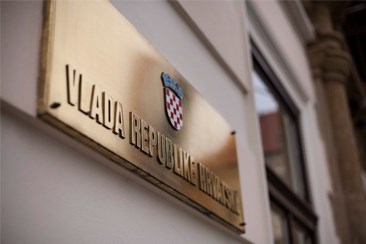- Published: 29.11.2017.
Announcement of the Government of the Republic of Croatia on the judgment of the Hague Tribunal
The Croatian government said on Wednesday that many of the allegations in the verdict handed down by the Hague war crimes tribunal in the case of six Bosnian Croat wartime political and military leaders did not take into account the historical truth and facts, that those allegations were unfounded and politically unacceptable, and that it would consider all legal and political mechanisms available to contest them.
"The government expresses deep dissatisfaction and regret over today's verdict which confirmed the sentences for Jadranko Prlic,Bruno Stojic, Slobodan Praljak, Milivoj Petkovic, Valentin Coric and Berislav Pusic. Many of the allegations do not take into account the historical truth and facts, they are unfounded and politically unacceptable," the government said in a statement.
The government recalled the assistance Croatia had extended to Bosnia and Herzegovina when the Serbian military aggression threatened its territorial integrity.
"Croatia signed the Washington Agreement and the Split Declaration (Tudjman-Izetbegovic) which allowed the use of the territory of Bosnia and Herzegovina for the joint fight against Serb armed forces. This renewed Croatian-Bosniak military cooperation and enabled the establishment of the Federation of Bosnia and Herzegovina. Based on the agreements with the political leadership of Bosnia and Herzegovina, the Croatian army ended the Serb siege of Bihac and thus prevented a repetition of the Srebrenica genocide.
"Furthermore, the Croatian army, in alliance with the Bosnia and Herzegovina army and the Croatian Defence Council (HVO), liberated a large part of Bosnia and Herzegovina, ending the war, reversing the balance of power and enabling the signing of the Dayton Agreement. In addition, Croatia provided sanctuary to hundreds of thousands of refugees from Bosnia and Herzegovina and was also among the first countries to recognise Bosnia and Herzegovina.
"We should also recall that Bosnia and Herzegovina would not have become independent without Croats who, by participating and voting in a referendum in March 1992 together with Bosniaks, created foundations for the declaration of independence," the statement said.
The government once again expressed condolences to all victims of crimes committed during the war in Bosnia and Herzegovina.
It said that this verdict totally erroneously alluded to the role of the Croatian state leadership in the war in Bosnia and Herzegovina. "Here we primarily mean the failure to take into account the appeals by the six Croats against the ICTY Trial Chamber ruling concerning the allegation of a joint criminal enterprise."
"We wish to note that the Republic of Croatia wanted to get involved in this case as an amicus curiae already in 2006 when the proceedings began and tried it again in 2016 and 2017 during the appeals process, but the Tribunal rejected Croatia's requests," the statement said.
The statement noted that in July 2016, after rejecting the Croatian request to join in the proceeding, the same Appeals Chamber said that in its ruling of 2013 the Trial Chamber did not adopt any specific conclusions about the participation of the Croatian state leadership in the joint criminal enterprise and did not find them guilty of any crimes. The Appeals Chamber confirmed that it was not within the ICTY's jurisdiction to determine the responsibility of states and that the Trial Chamber's findings did not apply to Croatia.
"In this context, we wish to draw attention to the absurd fact that none of the ICTY's final judgments for Bosnia and Herzegovina established the responsibility of the then state leadership of Serbia for participating in a joint criminal enterprise aimed at establishing a Greater Serbia through the commission of the gravest international crimes in a large part of the territory of Bosnia and Herzegovina.
"We also believe that the allegation that the six Croats from Bosnia and Herzegovina acted as members of a joint criminal enterprise in Bosnia and Herzegovina, was made without sufficient examination and understanding of all the circumstances of their actions, basic goals, including the role of the HVO as a component of the Armed Forces of the then Republic of Bosnia and Herzegovina, and with unacceptably broad interpretation of the term 'joint criminal enterprise' which goes beyond the application of the existing international humanitarian law.
"In the light of the above, the government will consider all legal and political mechanisms available to contest the allegations in today's verdict," the statement said.
The government once again reiterated its strong support for the Croats as a constituent people within Bosnia and Herzegovina. "We remain committed to further promotion of friendly and good-neighbourly relations with Bosnia and Herzegovina and a strong advocate of its European path," the statement said.
